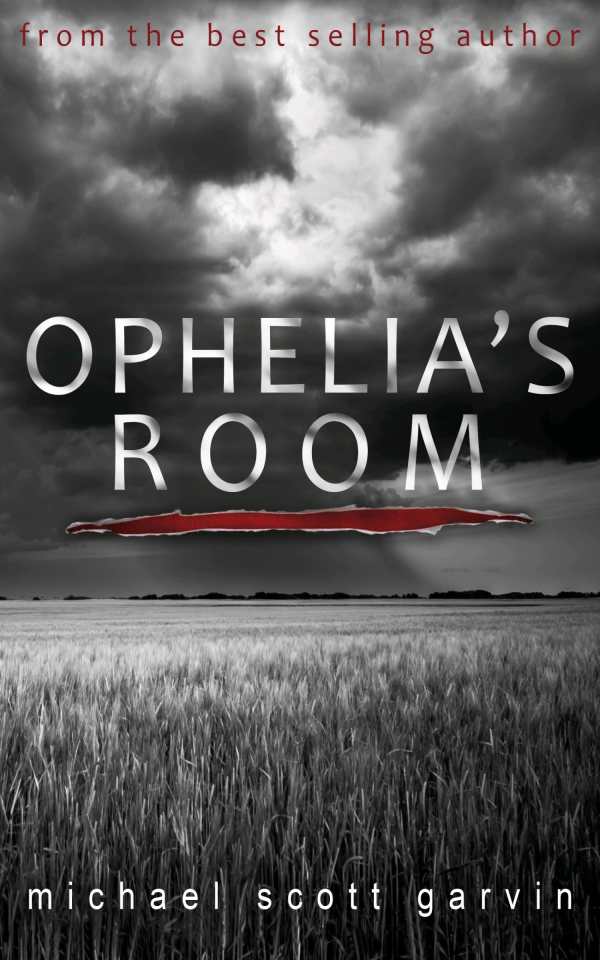
Ophelia's Room
The literary thriller Ophelia’s Room is visceral as it rollercoasters through middle America in the 1960s.
In Michael Scott Garvin’s riveting novel Ophelia’s Room, infanticide in a small town fuels a soul search.
In 1968, newlyweds Delia and Charlie Mull have a baby girl. Against Charlie’s advice, Delia invites her mentally ill father, Lloyd, who was abused as a child and is estranged from her after his wife’s death, to the birth. When the delivery room nurse hands Lloyd the newborn, he chokes her with rosary beads. Lloyd goes to prison and Betty, a sexy, single school teacher, moves into the neighborhood, chased by rumors that she’s escaping a school scandal in Wichita. This series of events threatens Delia and Charlie’s marriage and sends ripples of suspicion and terror through their Kansas prairie community.
The plot builds around instances of opposition in a landscape that is a source of both danger and calm. At first glance it is bland and flat, a windswept flyover country. But twisters, storms, and drastic temperature changes highlight its potential for drama. Homegrown kindness and hot gossip are baked into the town’s culture, where food is both a source of comfort (Charlie’s mom feeds him whenever he comes over) and a means of exacting revenge: Betty shares a batch of laced brownies with duplicitous new friends.
Elsewhere, Lloyd and the prison chaplain discuss biblical passages and come to contrasting opinions. The chaplain sees salvation and redemption where Lloyd sees punishment and divine command. And while Charlie and Delia fight to stay together despite Delia’s sympathy toward her father, Charlie’s parents stay together despite constant fighting. These shifting extremes keep the story teetering on the edge; its ordinary elements become surprising, and it raises ethical and philosophical questions at every turn.
The book’s strong characters are also shaped by conflicting forces, as when, in the midst of loss, Delia has to decide between her father and her husband, or when she compares her prison visit with her father to feelings when approaching a carnival ride, both excited and scared. In the face of the town’s stoic, Midwestern responses to her grief (people bring casseroles in lieu of sharing comforting words), Betty is a refreshing, understanding friend whose low-cut, high-hem style and big-city mystique intrigue Delia and earn her admiration. Others, including a crotchety neighbor, also exemplify the divide between outward appearances and the truth.
Still, as it toggles between Charlie’s parents, Betty, Charlie, Delia, and Lloyd, the novel seems unclear about its focus at first. Lloyd becomes the central figure by the end, increasing suspense about Delia’s predicament: she’s concerned for Lloyd, but also has to consider her own safety. Her transformative decision comes as a result of her quiet brooding, boisterous relations with Charlie and Betty, and scary encounters with Lloyd, resulting in a realistic, rich, and complex ending.
Laying bare dignified, troubled beings with a blend of eloquence and horror, the literary thriller Ophelia’s Room is visceral as it rollercoasters through middle America in the 1960s.
Reviewed by
Mari Carlson
Disclosure: This article is not an endorsement, but a review. The publisher of this book provided free copies of the book and paid a small fee to have their book reviewed by a professional reviewer. Foreword Reviews and Clarion Reviews make no guarantee that the publisher will receive a positive review. Foreword Magazine, Inc. is disclosing this in accordance with the Federal Trade Commission’s 16 CFR, Part 255.
